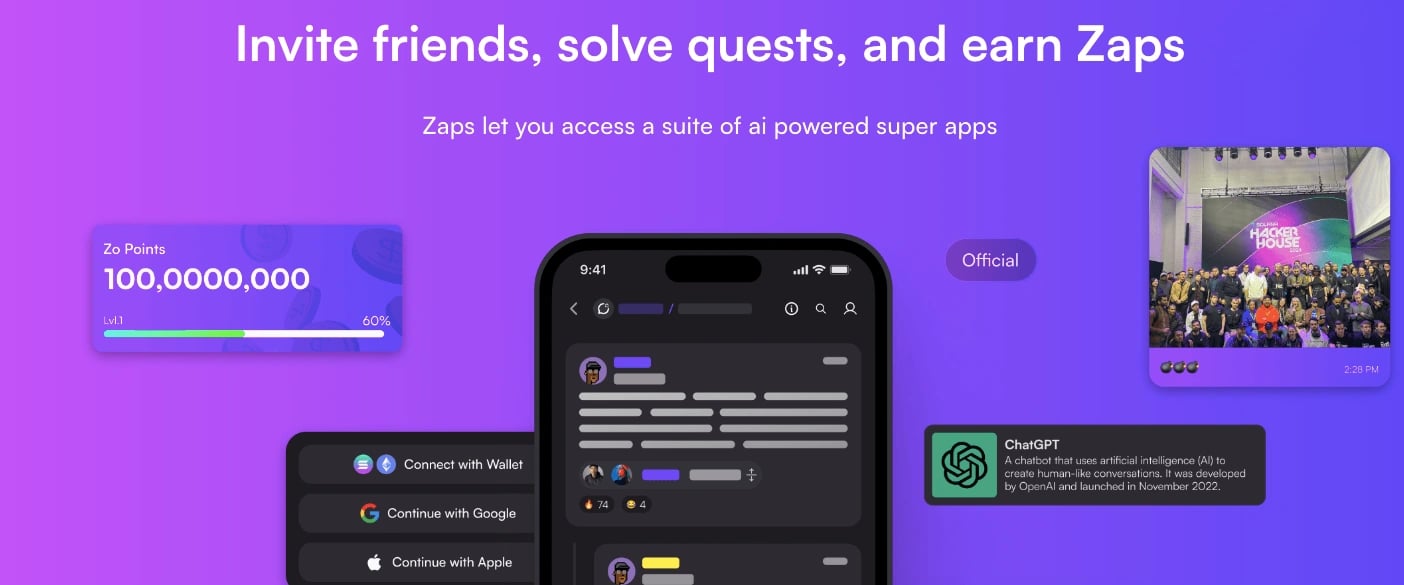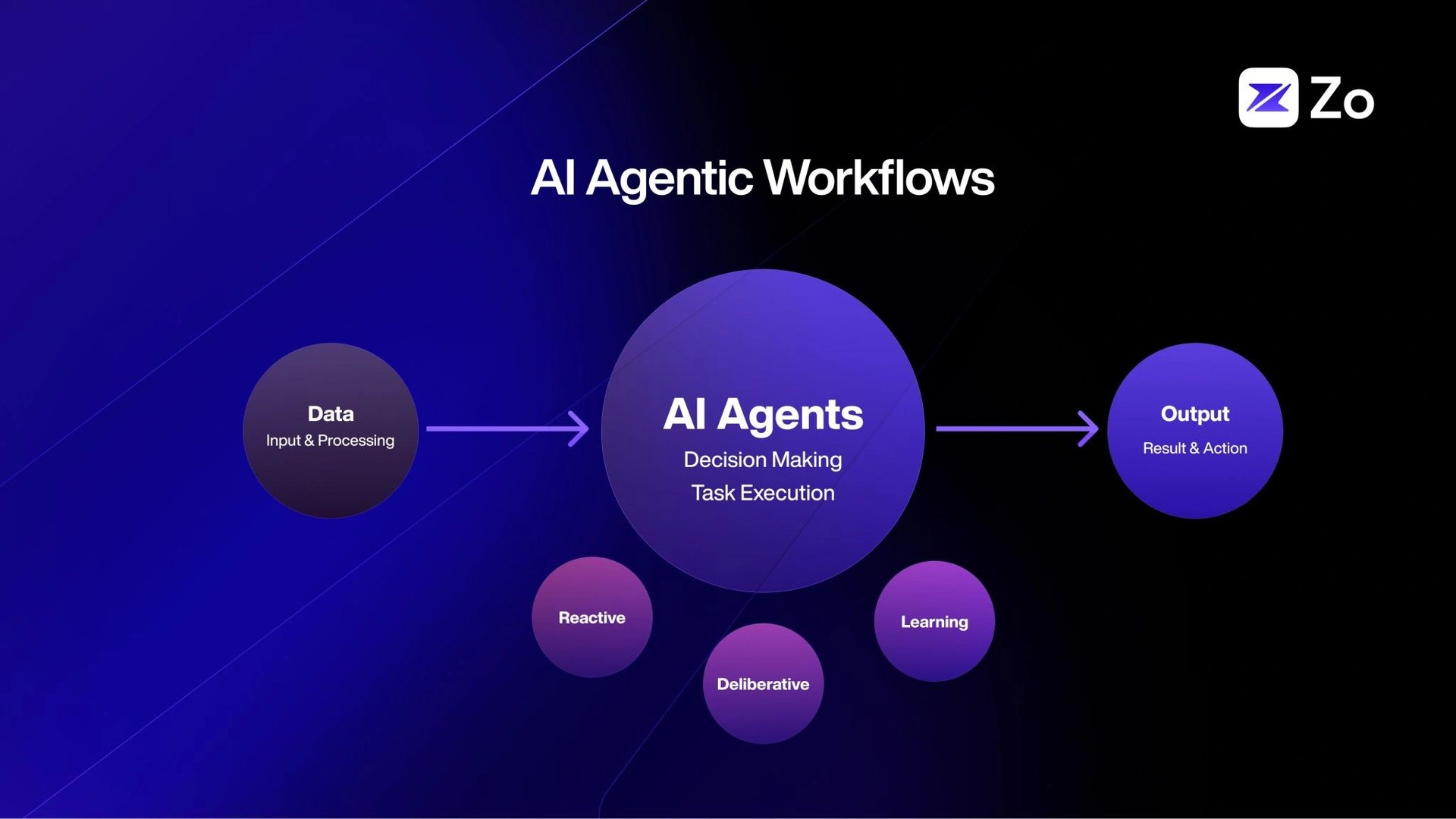订阅 wiki
Share wiki
Bookmark
Zo
0%
Zo
Zo 是一个由 Azi Mandias 创立的平台,旨在实现用户与 AI 代理 之间的无缝互动。它使用户能够获得奖励、创建和分享内容,并探索 AI 驱动的应用程序。[1] [2]

概述
Zo 是一个集成了 AI 驱动的应用程序、社交互动和数字参与的平台。它使用户能够创建和与自定义 AI 应用互动,参与包括朋友和 AI 代理 的群聊,并通过个性化的个人资料展示他们的数字形象。该平台还包含一个奖励系统,允许用户通过积极参与各种活动来获得激励。凭借 AI 驱动的群聊、基于参与度的 XP 奖励以及 AI 迷你应用市场等功能,Zo 旨在成为新兴“代理网络”的行动层。通过整合 AI、社交互动和数字资产,Zo 致力于在统一的生态系统中重新定义人与代理之间的协调。[1] [2] [3]

Zo 的特点
联邦链上多代理系统中的 CRDT
无冲突复制数据类型 (CRDT) 是一种去中心化的数据结构,可确保多个系统之间的最终一致性,而无需协调或锁定机制。
在像 Zo 这样的联邦链上多代理系统中,CRDT 有助于:
- 去中心化状态管理: 代理独立运行,而 CRDT 同步整个网络的更新,从而确保数据一致性。
- 无冲突的并发更新: CRDT 允许多个代理同时修改共享状态,而无需共识机制。
- 更低的交易成本和延迟: 通过启用异步更新,CRDT 减少了对 区块链 共识的依赖,从而提高了效率。
- 跨链互操作性: CRDT 有助于在多个区块链上保持一致的状态,从而支持无缝的多代理协调。[3]
AI 代理工作流
AI 代理工作流是由自主 AI 代理执行的结构化操作序列,旨在以最少的人工干预完成任务或实现特定目标。这些工作流利用人工智能来处理数据、做出决策和执行操作,从而提高效率和可扩展性。
主要组成部分:
- AI 代理: 在其环境中感知、分析和行动的自主系统。
- 机器学习 (ML): 使 AI 代理能够通过数据驱动的学习来改进决策。
- 自然语言处理 (NLP): 促进 AI 与人类语言的交互,以进行文本分析和对话等任务。
- 预测分析: 使用统计模型和机器学习来预测结果并为决策提供信息。
- 智能自动化: 将 AI 与自动化相结合,以创建能够适应新条件的自我维持工作流。
AI 代理工作流的演变
早期的 AI 系统是基于规则的,需要显式编程和人工监督。机器学习的引入提高了适应性,使 AI 能够根据数据改进其响应。随着计算能力、云基础设施和大数据的发展,AI 驱动的工作流已发展成为高度自主的系统,能够管理金融、医疗保健和物流等行业的复杂运营。[3]

DRiP 合作
Zo 已与 DRiP 合作推出 Singularity Drop 系列,这是一组独家的 AI 集成数字藏品。这些 NFT 的持有者可以获得特殊任务,总计 500 万个 Droplet 的奖励,每个用户保证获得 500 个 Droplet,以及价值 1,000 美元的额外奖品。此次合作将 AI 驱动的互动与基于 NFT 的参与相结合,扩大了 Zo 生态系统中用户的机会。[2]
发现错误了吗?
